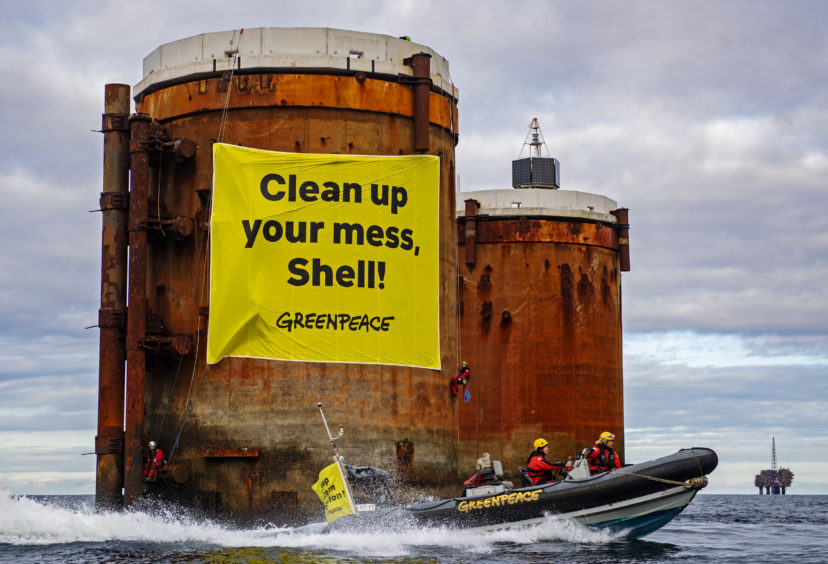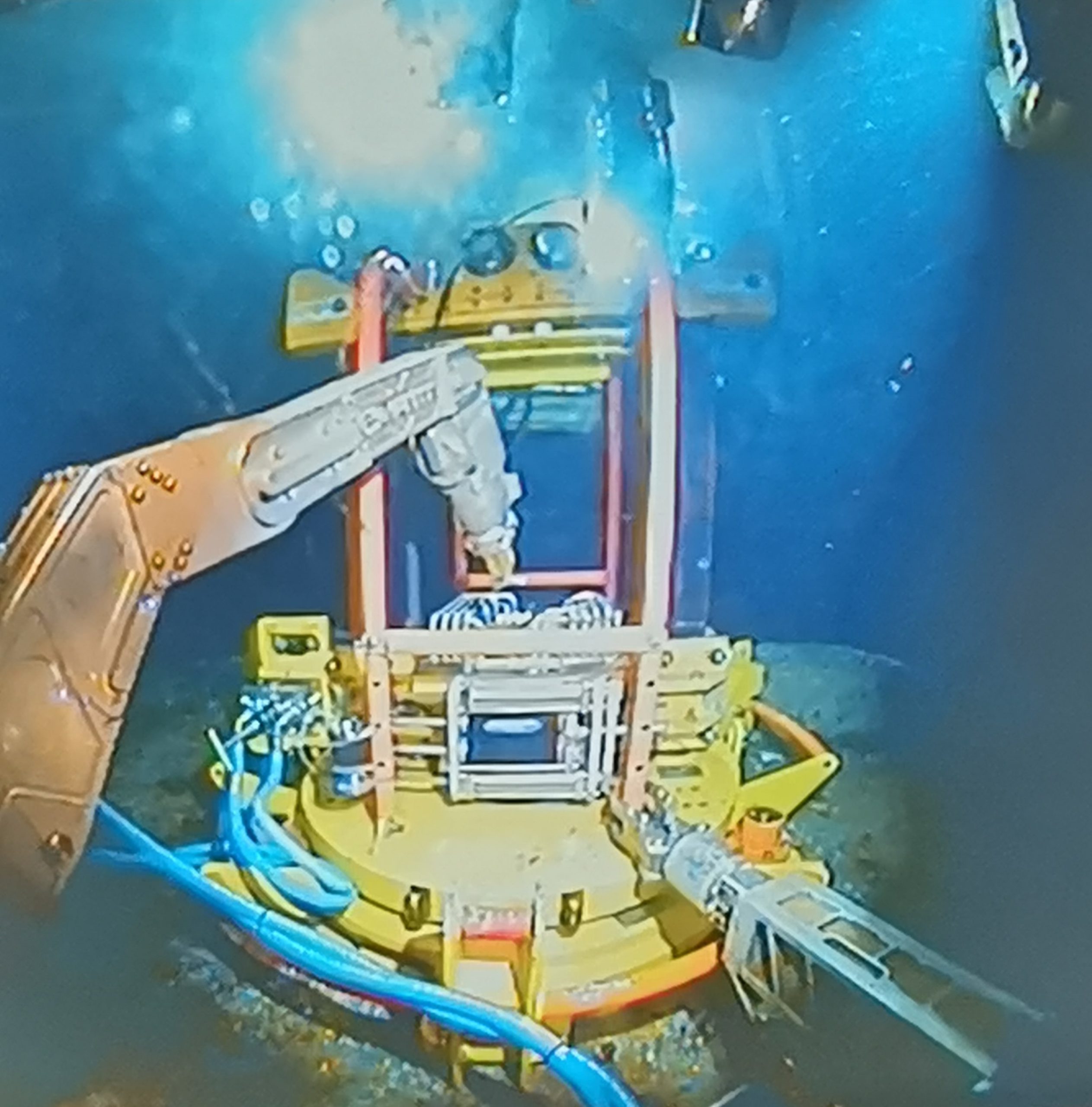
Work is being carried out to remove “attic oil” from the Brent Bravo installation – which has been the subject of widespread environmental concerns – after Shell estimated none was there.
Shell said in documents published in 2017 and 2018 it believed Bravo had “zero” volumes of the free-flowing oil in its legs, however Enpro Subsea has now been carrying out work to remove it.
Shell’s Brent field has been the subject of environmental protests over its plans to leave the huge legs of Bravo, Charlie and Delta – and their estimated 11,200 tonnes of oil sediment contents – in place.
Now the news of the Bravo attic oil, which is a separate liquid substance higher up the legs but in much smaller volumes than the sediment, has rekindled concerns over the sampling and testing process of what lies within the structures.
Shell expected attic oil within legs of other Brent installations but not Bravo, according to the 2018 “derogation assessment”.
Campaigners welcomed the move but said the attic oil was not the “major issue” on Brent’s decom plans.
David Santillo, a research fellow at Exeter University and senior scientist at Greenpeace, said it was “interesting” that this work was being carried out given “Bravo was not expected to contain any attic oil, according to Shell’s figures”.
He said: “It would be interesting to ask how much attic oil was removed from Bravo in the end, and, if a significant amount, why Shell’s estimates on this were so wide of the mark.”
A Shell spokesperson said: “These figures were estimates, as the document clearly states.
“Where we thought volumes could be higher on Bravo’s sister platforms, we submitted those figures too.”
Shell said its commitment to enter the storage cells and “completely remove the attic oil” has not changed, adding, “this is what we’re doing, using for the first time a groundbreaking technology which will allow the safe and environmentally sound removal of attic oil at platforms like Brent Bravo across the industry”.
However Shell has not disclosed how much was removed or how much remains, with the final volume not known until it is taken to shore and treated.
Greenpeace, who have staged two protests at Brent in the last year, said the oil sediment at the bottom of the legs remains its “focus”.
Objectors have said that leaving the legs in place would be acceptable so long as they are adequately cleaned, with the substance removed.
Shell, who is seeking permission from the UK Government to leave the legs in place, argues the safety risk and cost of removing these giant structures would outweigh any environmental benefit.
The Ospar convention requires the removal of oil and gas infrastructure from the seabed, although exemptions may be granted through derogations, which is what Shell is applying for.
However, Ospar members Germany and the Netherlands have made objections.
Enpro, bought by Hunting earlier this year, said it has now completed its fourth project for Shell to remove the attic oil at Brent Bravo and Delta using Enpro’s F-Decom technology on the cells at 140metres depth.
Rather than be deployed from the platform itself, this time a DeepOcean construction vessel was used, reducing the time and cost.
The F-Decom system is “the only field proven system for securely accessing fluids within gravity-based structures (GBS) concrete cells”, Enpro said.
The firm added it is “assisting operators to safely meet their decommissioning regulatory obligations to protect Europe’s marine environment”.
Jim Rae, an independent decommissioning consultant who has worked for a number of North Sea operators, said “the nature of the substance has not been satisfactorily defined” within the legs.
He added: “Removal of the attic oil complies with the international regulations, however it is not the major issue with regard to the concrete structures on the Brent field”.
Another specialist, who did not wish to be named, said the work comes “nowhere near” meeting Shell’s removal obligations under Ospar.
However, on the Enpro project, Friends of the Earth Scotland just transition campaigner Ryan Morrison said: “It is welcome to see companies working hard to reduce the toxic legacy of oil platforms in the North Sea.”
Recommended for you



 © Enpro
© Enpro